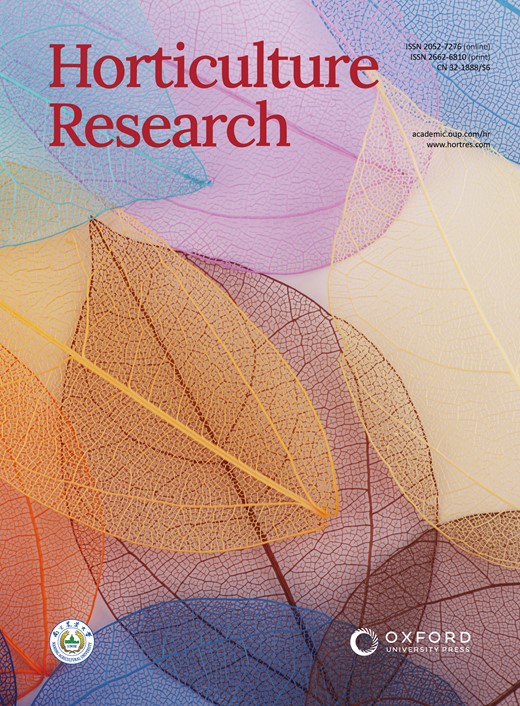A comprehensive overview of omics-based approaches to enhance biotic and abiotic stress tolerance in sweet potato
IF 8.7
1区 农林科学
Q1 Agricultural and Biological Sciences
引用次数: 0
Abstract
Biotic and abiotic stresses negatively affect the yield and overall plant developmental process, thus causing substantial losses in global sweet potato production. To cope with stresses, sweet potato has evolved numerous strategies to tackle ever-changing surroundings and biological and environmental conditions. The invention of modern sequencing technology and the latest data processing and analysis instruments has paved the way to integrate biological information from different approaches and helps to understand plant system biology more precisely. The advancement in omics technologies has accumulated and provided a great source of information at all levels (genome, transcript, protein, and metabolite) under stressful conditions. These latest molecular tools facilitate us to understand better the plant's responses to stress signaling and help to process/integrate the biological information encoded within the biological system of plants. This review briefly addresses utilizing the latest omics strategies for deciphering the adaptive mechanisms for sweet potatoes' biotic and abiotic stress tolerance via functional genomics, transcriptomics, proteomics, and metabolomics. This information also provides a powerful reference to understand the complex, well-coordinated stress signaling genetic regulatory networks and better comprehend the plant phenotypic responses at the cellular/molecular level under various environmental stimuli, thus accelerating the design of stress-resilient sweet potato via the latest genetic engineering approaches.全面概述基于组学的提高甘薯生物和非生物胁迫耐受性的方法
生物和非生物胁迫对甘薯的产量和整个植物生长过程产生负面影响,从而给全球甘薯生产造成巨大损失。为了应对胁迫,甘薯已经进化出许多策略来应对不断变化的环境和生物及环境条件。现代测序技术和最新数据处理与分析仪器的发明为整合来自不同方法的生物信息铺平了道路,有助于更精确地了解植物系统生物学。全息技术的进步积累并提供了在胁迫条件下各个层面(基因组、转录本、蛋白质和代谢物)的大量信息。这些最新的分子工具有助于我们更好地了解植物对胁迫信号的反应,并有助于处理/整合植物生物系统中编码的生物信息。本综述简要介绍了如何利用最新的 omics 策略,通过功能基因组学、转录物组学、蛋白质组学和代谢组学来破译甘薯对生物和非生物胁迫耐受性的适应机制。这些信息还为了解复杂、协调的胁迫信号遗传调控网络,更好地理解各种环境刺激下细胞/分子水平的植物表型反应提供了有力的参考,从而加快了通过最新基因工程方法设计抗胁迫甘薯的进程。
本文章由计算机程序翻译,如有差异,请以英文原文为准。
求助全文
约1分钟内获得全文
求助全文
来源期刊

Horticulture Research
Biochemistry, Genetics and Molecular Biology-Biochemistry
CiteScore
11.20
自引率
6.90%
发文量
367
审稿时长
20 weeks
期刊介绍:
Horticulture Research, an open access journal affiliated with Nanjing Agricultural University, has achieved the prestigious ranking of number one in the Horticulture category of the Journal Citation Reports ™ from Clarivate, 2022. As a leading publication in the field, the journal is dedicated to disseminating original research articles, comprehensive reviews, insightful perspectives, thought-provoking comments, and valuable correspondence articles and letters to the editor. Its scope encompasses all vital aspects of horticultural plants and disciplines, such as biotechnology, breeding, cellular and molecular biology, evolution, genetics, inter-species interactions, physiology, and the origination and domestication of crops.
 求助内容:
求助内容: 应助结果提醒方式:
应助结果提醒方式:


